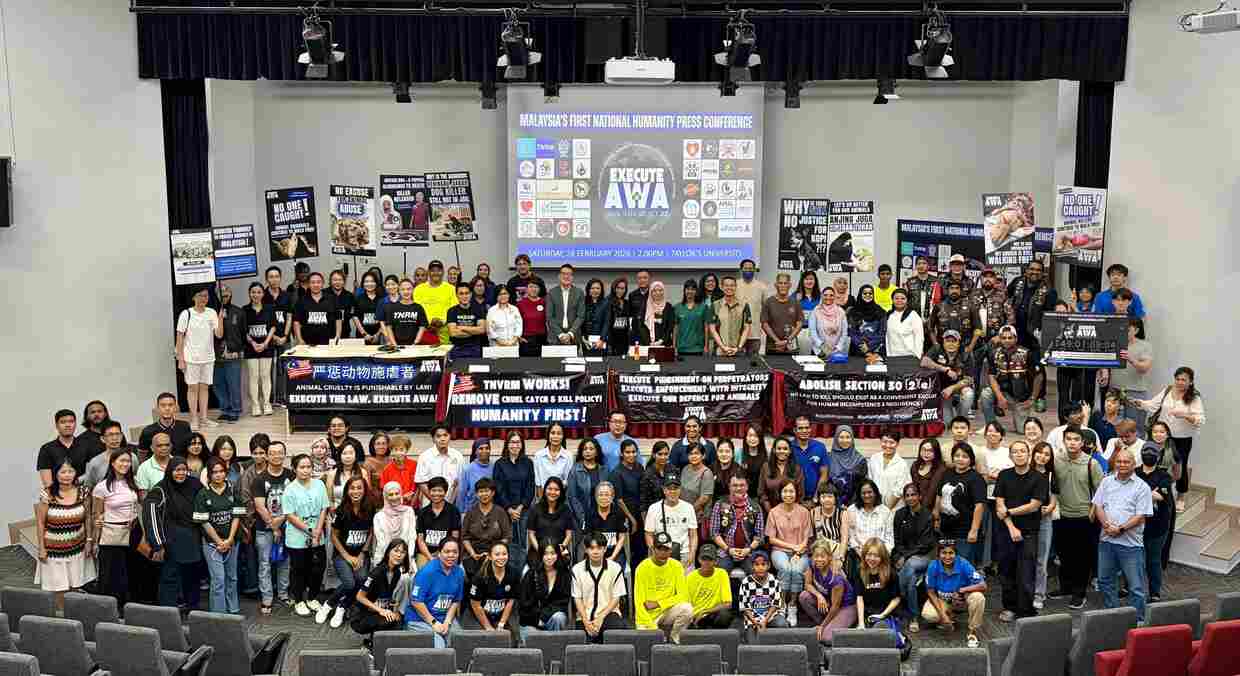Wild Asia urges people to re-think their daily routines and holiday plans and incorporate more sustainable practices in recognition of Earth Day 2011.
Flocking pigeons! Pests to some, but a closer look shows each pigeon is an individual with unique plumage; no one bird is alike. Have we become so busy that these intricate details escape us?
The same can be said for our earth.Urbanites caught in the corporate ladder miss the beauty, diversity and the value of biodiversity around us.
Take a look at the picture below: this ad campaign was designed by M&C Saatchi and Wild Asia as a call for action. Take a closer look at our surroundings and you will realise that our earth is slowly losing life just from the ignorance our daily decisions.
How can we conserve and value biodiversity?
“It is important that we take time from our busy routine to re-connect with our environment,” says Wild Asia’s programme manager Deborah Chan. “After all, we ultimately depend on our environment for every aspect of our modern lives”. In your backyard, a trip to the park, or a simple act to conserve natural resources, every bit makes a difference.
This Earth Day, April 22, will take on the theme of A Billion Acts of Green, a people-powered campaign to generate a billion acts of environmental service and advocacy.
Here are a few ideas that you can commit to:
• Eat local food– buying local foods and produce decreases the CO2 emissions from transportation. Buy local strawberries from Cameron Highlands instead. The food travels less, reduces CO2 emissions, and is fresher! (Better still would be to eat local fruit.)
• Reduce electricity consumption– turn off the air conditioner for one day (or many days) and make a drastic reduction in energy used, and in the monthly bill.
• Reduce and reuse– bring reusable bags for shopping. This saves on energy used to produce plastic bags and the amount of toxic plastic materials sent to the landfills, which also end up in the sea. Reusable bags come in fashionable designs and beat pink plastic bags anytime! (Better still, reduce your urge to accumulate things you don’t need and shop less.)
• Recycle– take the extra time to separate your rubbish at home; bring it over to any local recycling centres nearest to you. (www.alamflora.com.my/V3/ListOfCommunityRecyclingCentre.htm)
• Conserve Water– Help to conserve water by taking shorter showers and turning off the tap while you brush your teeth. Every drop counts!
Earth Day and responsible travel
Taking a holiday soon? Make your next holiday an earth-friendly one. There is a growing concern that many tourism destinations are not sustainable. Issues of over-development, exploitation of local communities, destruction of natural areas and poor solid waste management are some of the common concerns. Wild Asia has been striving to make destinations more sustainable for over a decade now.
“In 1998 Wild Asia began scouting for pioneers and gems in responsible tourism (RT) across Asia, we worked to find relevant benchmarks in sustainable tourism and with that the Responsible Tourism Initiative was created,” says Dr Reza Azmi, founder and director of Wild Asia.
“We have had the privilege of gaining insights from over 170 operators across Asia, and have seen that by conserving the very destinations that tourists come to Asia for in the first place, businesses ensure a sustainable operation that benefits the environment, local communities and local economy in the long run.”
Here are some ways for you to reduce your impact on the planet while you are on the go:
Before you travel
• Ask your tour operator if there are local conservation or social projects, and how you can support them
• Ask to see the tour operator’s policy on responsible tourism, which should explain how they minimise environmental impacts and support the local economy
Reduce your carbon emissions
• Take fewer but longer holidays
• Travel by train and public transport
• Book direct flights avoiding transfers
While on holiday
• Buy local produce in preference to imported goods
• Hire a local guide – you’ll discover more about local culture and meet local people, contributing directly to their income
• Do not buy products made from endangered species, hard woods or ancient artifacts
• Respect local cultures, traditions and holy places – if in doubt ask for advice
• Use public transport, bicycle or walk – a great way to meet locals on their terms and reduce pollution and carbon emissions
• Use water carefully – it is very precious in many countries and tourists tend to use far more than local people












